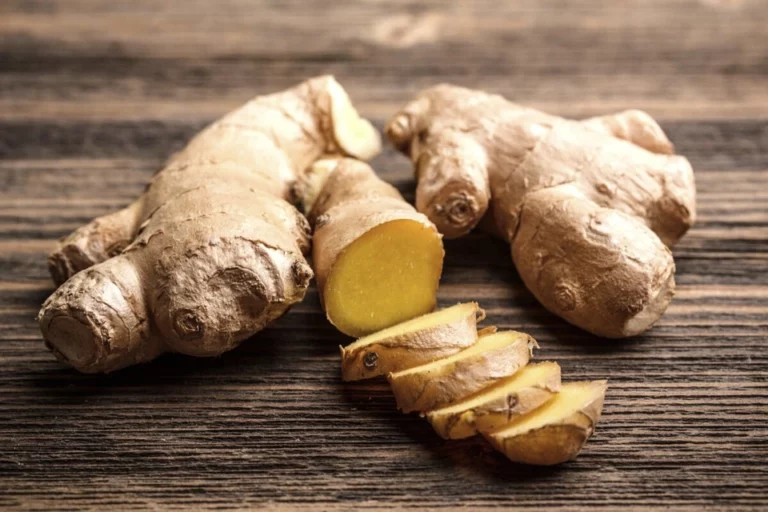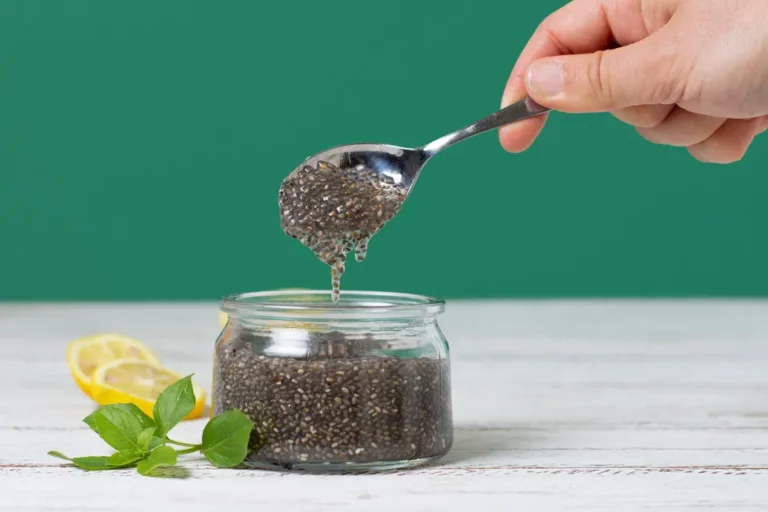Bitter Melon: A Taste of Tradition with a Twist of Health
In the realm of nature’s bounty, a fruit has long been shrouded in misconception, often dismissed as an acquired taste, a culinary enigma. Its name alone evokes a sense of trepidation, a promise of an unpleasant encounter with the bitterness that lingers on the tongue. However, beneath this unassuming exterior lies a nutritional powerhouse, offering numerous bitter melon health benefits that can transform our well-being.
This is the story of bitter melon, a fruit revered for its medicinal properties for centuries. Its bitter taste is a testament to its potent arsenal of nutrients. Often, we relegate bitter melon to the sidelines of culinary creations. However, we should bring it into the spotlight. Not as an exotic delicacy, but as a staple in our diets. It is a key ingredient in our quest for optimal health.
Bitter melon is not only a taste of tradition but also a twist of health. This fruit packs nutrients and compounds that support our well-being. It helps with blood sugar control and cancer prevention. Let’s explore the fascinating history and traditional uses of bitter melon. We will also look at the scientific evidence behind its remarkable health effects. Additionally, we will show you how to incorporate bitter melon into your diet. Enjoy its benefits without compromising your taste buds.
Este artículo también está disponible en Español
A Glimpse into Bitter Melon’s History and Traditional Uses
Bitter Melon, also known as Bitter Gourd, Karela, or Momordica Charantia, is a tropical vine. People have revered it for its medicinal properties for centuries. Native to India and Southeast Asia, bitter melon has found its way into various traditional medicine practices worldwide. Its unique, albeit bitter, taste belies an abundance of nutrients and beneficial compounds. These offer a plethora of health benefits.

Before delving into the science-backed benefits of bitter melon, let’s appreciate its rich history and traditional uses. For centuries, bitter melon has been a staple in traditional medicine across Asia, Africa, and South America. Its bitter taste, often considered an acquired one, has not deterred people. They continue to utilize its potential health-promoting properties.
In India, Ayurvedic medicine has long employed bitter melon for treating diabetes, fever, skin infections, and digestive issues. People believe bitter melon balances the doshas, or the energies that govern the body and mind. They also believe it purifies the blood and liver. Additionally, they use bitter melon as a natural remedy for worms, ulcers, and wounds.
Traditional Chinese medicine has also used bitter melon to address liver problems and cancer. It is also used as an antipyretic and analgesic. People consider bitter melon to have cooling and detoxifying effects. They believe it harmonizes the Qi, or the vital energy that flows through the body. They also use bitter melon to treat coughs, sore throats, and constipation.
Similarly, in Africa, bitter melon has been a valued component of traditional medicine. Here, people have used bitter melon to treat diabetes, malaria, and HIV/AIDS. They believe bitter melon has antidiabetic, antimalarial, and antiviral properties, and boosts the immune system and metabolism. They also use bitter melon to relieve pain, inflammation, and infections.
Finally, in South America, people have widely used bitter melon for its health benefits. They use bitter melon to manage diabetes, high blood pressure, and skin infections. Its digestive and diuretic properties make it a useful ingredient in traditional medicine in this region. They also use bitter melon to treat rheumatism, kidney stones, and menstrual disorders.
Unveiling the Nutritional Powerhouse: Bitter Melon’s Nutrient Profile
Bitter melon is more than just a bitter fruit; it’s a nutritional powerhouse brimming with essential vitamins, minerals, and antioxidants. Let’s explore the nutrient profile that underpins its remarkable health benefits:
- Vitamin C: A crucial antioxidant that supports immune function and collagen production. Bitter melon provides 99% of the DV for vitamin C per 100 grams, making it one of the richest sources of this vitamin.
- Vitamin A: Plays a vital role in vision, cell growth, and immune system health. Bitter melon provides 44% of the DV for vitamin A per 100 grams, mostly in the form of beta-carotene, a plant pigment that the body can convert into vitamin A.
- Fiber: Essential for digestive health, regulating blood sugar levels, and promoting satiety. Bitter melon provides 2 grams of fiber per 100 grams, which is 8% of the DV. Fiber can also help lower cholesterol and prevent constipation.
- Potassium: Regulates blood pressure, muscle function, and nerve signaling. Bitter melon provides 8% of the DV for potassium per 100 grams, which is comparable to other potassium-rich fruits like bananas and oranges. Potassium can also help prevent kidney stones and osteoporosis.
- Magnesium: Supports muscle and nerve function, energy production, and blood sugar control. Bitter melon provides 5% of the DV for magnesium per 100 grams, which is similar to other green vegetables like spinach and broccoli. Magnesium can also help prevent migraines and depression.
- Iron: Essential for oxygen transport, red blood cell production, and energy levels. Bitter melon provides 4% of the DV for iron per 100 grams, which is higher than most fruits and comparable to some meats. Iron can also help prevent anemia and infections.
- Vitamin B1 (Thiamine): Plays a role in energy metabolism, nerve function, and heart health. Bitter melon provides 3% of the DV for vitamin B1 per 100 grams, which is similar to other grains and legumes. Vitamin B1 can also help prevent beriberi and Wernicke-Korsakoff syndrome.
- Vitamin B2 (Riboflavin): Supports energy production, cell growth, and skin health. Bitter melon provides 3% of the DV for vitamin B2 per 100 grams, which is similar to other dairy products and eggs. Vitamin B2 can also help prevent cataracts and migraine headaches.
READ OUR RELATED POST:

Can Vitamin C Cure Cancer? The Unsolved Controversy That Divides Scientists and Doctors
Can vitamin C cure cancer? Find out the truth behind this unsolved controversy and how vitamin C affects cancer cells. Click here to read the post and start your journey to better health and happiness.
Bitter Melon’s Remarkable Health Benefits
Bitter melon is not only a nutritious fruit but also a powerful natural remedy for various health conditions. Its bitter taste is a sign of its potent phytochemicals, such as charantin, cucurbitacin, momordicin, and polypeptide-p. These compounds have been shown to have beneficial effects on the body. In this section, we will explore some of the specific health benefits of bitter melon. We will also look at the scientific evidence behind them.
How Bitter Melon Health Benefits Your Blood Sugar Levels
One of the most notable bitter melon health benefits is its ability to regulate blood sugar levels. This fruit is widely used as a natural treatment for diabetes, especially type 2 diabetes. This type of diabetes is characterized by high blood sugar levels and insulin resistance. Bitter melon can help lower blood sugar levels by increasing the secretion of insulin. Insulin is the hormone that allows glucose to enter the cells and be used for energy.
Additionally, it can improve insulin sensitivity. This means that the cells respond better to insulin and require less of it to maintain normal blood sugar levels. Moreover, bitter melon can inhibit the enzymes that break down carbohydrates into glucose. This reduces the amount of glucose that enters the bloodstream after a meal.

Several studies have confirmed the anti-diabetic effects of bitter melon in humans and animals. For example, a study in 40 people with type 2 diabetes found that taking 2,000 mg of bitter melon extract per day for 4 weeks significantly reduced blood sugar levels and improved hemoglobin A1c, a marker of long-term blood sugar control.
Another study in 100 people with type 2 diabetes showed that taking 500 mg of bitter melon extract three times a day for 16 weeks resulted in a 54% reduction in fasting blood sugar levels and a 51% reduction in post-meal blood sugar levels.
Harnessing Bitter Melon Health Benefits for Cancer Prevention
Another potential benefit of bitter melon is its anticancer properties. It can induce apoptosis, or programmed cell death, in cancer cells. Apoptosis is a natural process that eliminates damaged or abnormal cells from the body. This prevents them from growing and spreading.
Bitter melon contains several compounds that can trigger apoptosis in cancer cells, such as cucurbitacin, momordicin, and polypeptide-p. These compounds can also inhibit angiogenesis. Angiogenesis is the formation of new blood vessels that supply oxygen and nutrients to cancer cells. By blocking angiogenesis, bitter melon can starve cancer cells. This prevents them from invading other tissues.
Research has shown that bitter melon can suppress the growth of various types of cancer cells, such as breast, prostate, colon, liver, and leukemia. However, more studies are needed to determine the safety and efficacy of bitter melon as a cancer treatment in humans.
Bitter Melon Health Benefits for Heart Health
Bitter melon protects the heart by lowering cholesterol and triglyceride levels. It prevents LDL oxidation and lowers blood pressure. These factors reduce the risk of atherosclerosis, which can lead to heart attack and stroke. Bitter melon relaxes blood vessels and promotes sodium excretion through urine, lowering blood pressure.
A study in 80 people with mild to moderate hypertension found that 4 grams of bitter melon powder daily for 3 months significantly reduced blood pressure. Another study in 40 people with high cholesterol found that 2,000 mg of bitter melon extract daily for 4 weeks significantly reduced total cholesterol, LDL cholesterol, and triglyceride levels.
Enhance Your Digestive Health with Bitter Melon
Bitter melon improves digestive health by stimulating digestive enzymes and bile secretion. This helps break down food and absorb nutrients. It enhances gastrointestinal motility, preventing constipation and promoting regular bowel movements. Bitter melon also treats digestive disorders like ulcers, gastritis, and colitis by reducing inflammation and protecting the stomach and intestinal lining.

It can also act as an antimicrobial agent, which can prevent or treat infections caused by bacteria, viruses, fungi, and parasites in the digestive system. Bitter melon has been shown to be effective against Helicobacter pylori, a bacterium that causes stomach ulcers and gastritis.
Research shows that bitter melon inhibits the growth of Candida albicans, a fungus that causes oral and vaginal thrush. Additionally, studies demonstrate that it kills Entamoeba histolytica, a parasite responsible for amoebic dysentery.
Boost Your Immune System with Bitter Melon
Bitter melon can also boost the immune system, which is the body’s defense mechanism against foreign invaders and diseases. It can enhance the activity of natural killer cells, macrophages, and T cells, which are the main components of the innate and adaptive immune system. These cells can recognize and destroy pathogens, such as bacteria, viruses, and cancer cells, before they cause harm to the body.
Bitter melon can also increase the production of cytokines, which are chemical messengers that regulate the immune response and inflammation. It can also modulate the expression of genes involved in the immune system, such as interferon-gamma, interleukin-2, and interleukin-4. Moreover, bitter melon can help prevent or treat various infections, such as respiratory infections, urinary tract infections, and skin infections, by inhibiting the growth and spread of the causative agents.
Bitter melon has been shown to have antiviral activity against influenza, herpes, and HIV. For example, a study by Lee-Huang et al. (1995) showed that a protein isolated from bitter melon, called MAP30, had potent anti-HIV and anti-tumor activities in vitro and in vivo.
Additionally, bitter melon has also shown antibacterial activity against Staphylococcus aureus, Escherichia coli, and Pseudomonas aeruginosa. It has also been shown to have antifungal activity against Aspergillus niger, Aspergillus flavus, and Aspergillus fumigatus.
Bitter Melon Health Benefits for Radiant Skin
Bitter melon improves skin health by preventing or treating conditions like acne, eczema, psoriasis, and wounds. It reduces acne by lowering blood sugar levels, which decreases sebum production. Sebum clogs pores and causes inflammation. Bitter melon also treats acne by inhibiting the growth of Propionibacterium acnes, the bacterium that causes acne.

It can also help treat eczema, psoriasis, and other inflammatory skin diseases by reducing inflammation and itching, and by modulating the immune system. It can also help heal wounds by stimulating the formation of new skin cells and blood vessels, and by preventing infection and scarring.
Bitter melon has been shown to accelerate wound healing in rats. Bitter melon can also help protect the skin from sun damage and aging by scavenging free radicals and enhancing the production of collagen and elastin, the proteins that give the skin its elasticity and firmness.
Support Your Respiratory Health with Bitter Melon
Bitter melon can also support respiratory health by preventing or treating various respiratory diseases, such as asthma, bronchitis, and cough. Additionally, It can help relieve asthma by relaxing the smooth muscles of the airways and reducing the constriction and inflammation that cause wheezing and shortness of breath.
It can also help treat bronchitis by reducing the mucus production and coughing that result from the inflammation of the bronchial tubes. It can also help soothe cough by acting as an expectorant, which helps expel the phlegm and clear the airways. Bitter melon has been shown to have bronchodilator and anti-asthmatic effects in animal studies and has also been shown to have antitussive effects in mice.
Promote Eye Health with Bitter Melon
Bitter melon can also promote eye health by preventing or treating various eye diseases, such as cataracts, glaucoma, and diabetic retinopathy. It can help prevent cataracts by reducing the accumulation of sorbitol, a sugar alcohol that can damage the lens. Bitter Melon can also help treat glaucoma by lowering intraocular pressure and improving the blood flow to the eye.

It can also help prevent diabetic retinopathy by lowering blood sugar levels and preventing oxidative stress and inflammation in the retina. Bitter melon has been shown to have anti-cataract, anti-glaucoma, and anti-diabetic retinopathy effects in animal studies.
Strengthen Your Bones with Bitter Melon
Bitter melon enhances bone health by preventing or treating osteoporosis, which increases fracture risk. It provides calcium, magnesium, and vitamin C, essential for strong bones. Calcium forms bone structure. Magnesium helps absorb calcium and stimulates bone formation. Vitamin C produces collagen, the protein forming the bone framework.
Bitter melon can also help treat osteoporosis by inhibiting the activity of osteoclasts, the cells that break down bone tissue. It can also stimulate the activity of osteoblasts, the cells that build up bone tissue. Additionally, bitter melon has been shown to have anti-osteoporotic effects in rats.
These are some of the remarkable health benefits of bitter melon that have been supported by scientific research. By consuming bitter melon regularly, you can reap its benefits and improve your overall health and well-being. In the next section, we will show you how to incorporate bitter melon into your diet and enjoy its benefits without compromising your taste buds.
How to Incorporate Bitter Melon into Your Diet for Maximum Health Benefits
Bitter melon may have many health benefits, but it also has a very bitter taste that can be hard to enjoy. However, there are ways to prepare and cook bitter melon that can make it more palatable and even delicious.

Let’s see how to incorporate bitter melon into your diet and enjoy its benefits without compromising your taste buds:
Choose the right variety and maturity
Bitter melon comes in different varieties, shapes, sizes, and colors. Some varieties are more bitter than others, so you may want to experiment with different types and find the one that suits your preference. Generally, the smaller, lighter green, and less bumpy varieties are less bitter than the larger, darker green, and more bumpy ones.
You may also want to choose bitter melon that is young and immature, as they tend to be less bitter than the older and ripe ones. You can tell the maturity of bitter melon by its color and texture. Young and immature bitter melons are light green and firm, while older and ripe bitter melons are yellowish and soft.
Reduce the bitterness
There are several methods to reduce the bitterness of bitter melon before cooking and eating it. One of the most common methods is to salt the bitter melon and squeeze out the juice. To do this, cut the bitter melon into thin slices or small pieces and sprinkle some salt over them. Let them sit for about 10 to 15 minutes, then squeeze out the juice with your hands or a cheesecloth. Rinse the bitter melon with water and drain well. This will remove some of the bitter compounds and make the bitter melon more edible.
Another method is to blanch the bitter melon in boiling water for a few minutes, then drain and rinse with cold water. This will also reduce the bitterness and soften the texture of the bitter melon. You can also soak the bitter melon in vinegar, lemon juice, or tamarind juice for about 15 to 20 minutes, then rinse and drain well. This will add some acidity and flavor to the bitter melon and mask some of the bitterness.
Cook with other ingredients
Bitter melon can be cooked with other ingredients that can balance its bitterness and enhance its flavor. Some of the best ingredients to pair with bitter melon are spices, herbs, sauces, meats, eggs, cheese, and sweeteners. Spices and herbs can add some heat and aroma to the bitter melon, such as garlic, ginger, onion, chili, turmeric, cumin, coriander, and curry. Sauces can add some saltiness and umami to the bitter melon, such as soy sauce, fish sauce, oyster sauce, and coconut milk.
Meats, eggs, and cheese can add some protein and fat to the bitter melon, such as pork, chicken, beef, shrimp, tofu, scrambled eggs, and feta cheese. Sweeteners can add some sweetness and contrast to the bitter melon, such as sugar, honey, maple syrup, and dates. You can mix and match these ingredients to create different dishes with bitter melon, such as stir-fries, soups, curries, salads, and casseroles.
Juice or blend with other fruits and vegetables
Bitter melon can also be juiced or blended with other fruits and vegetables to make a healthy and refreshing drink. Juicing or blending bitter melon can extract its nutrients and benefits, while diluting its bitterness and adding some sweetness and flavor.
Some of the best fruits and vegetables to juice or blend with bitter melon are apples, pears, pineapples, oranges, lemons, limes, carrots, celery, cucumber, and spinach. You can also add some water, ice, yogurt, milk, or honey to adjust the consistency and taste of your drink. You can drink bitter melon juice or smoothie as a breakfast, snack, or detox.
These are some of the ways to incorporate bitter melon into your diet and enjoy its benefits without compromising your taste buds. By trying these methods, you may discover that bitter melon is not only a nutritious fruit, but also a delicious one. In the next section, we will conclude our blog post and summarize the main points.
Wrapping Up: The Transformative Bitter Melon Health Benefits
Bitter melon is a fruit that deserves more recognition and appreciation for its amazing health benefits. From blood sugar control to cancer prevention, from heart health to digestive health, from immune system to skin health, bitter melon can help you improve your well-being in many ways. Bitter melon is also a rich source of vitamins, minerals, and antioxidants that can nourish your body and protect it from damage and disease.
But how can you enjoy bitter melon without compromising your taste buds? The answer is simple: by choosing the right variety and maturity, by reducing the bitterness, by cooking with other ingredients, and by juicing or blending with other fruits and vegetables. By following these tips, you can incorporate bitter melon into your diet and savor its unique flavor and nutritional value.
So, what are you waiting for? Give bitter melon a try and discover why it’s a taste of tradition with a twist of health. You may be surprised by how much you like it and how much it can benefit you. And don’t forget to share your experience with us in the comments below.
Cover Image of this post by jcomp on Freepik







This blog is a fascinating dive into the often-overlooked bitter melon, revealing its rich history, nutritional profile, and impressive health benefits. From blood sugar control to cancer prevention, the post provides scientific evidence supporting its advantages. What sets it apart is the practical advice on incorporating bitter melon into the diet, addressing its challenging taste. Overall, it’s a well-rounded guide, combining historical insights with nutritional science and actionable tips for readers to embrace this nutritious fruit.
Thank you for your kind words and thoughtful feedback. I’m glad you enjoyed reading this article. It’s always a pleasure to share my passion for healthy eating and traditional foods with readers like you. I appreciate your recognition of the research and tips I provided to make bitter melon more palatable and beneficial.
Thanks again for your support and interest. Stay tuned for more posts on bodybacktobasics.com! 😊
Your blog post on bitter melon is enlightening! I appreciate the way you’ve highlighted both its cultural significance and health benefits. Have you experimented with different cooking methods to make bitter melon more palatable? I’ve found that incorporating it into stir-fries or pairing it with slightly sweet flavors helps balance the bitterness. What’s your favorite recipe involving bitter melon?
I’ve recently started incorporating bitter melon into my diet due to its reputed health benefits, particularly its potential for regulating blood sugar levels. Have you come across any specific studies or personal anecdotes that showcase its effectiveness in managing diabetes or other health conditions? Your insights could be incredibly beneficial for those exploring natural remedies. Thank you for shedding light on this unique and nutritious ingredient!
Thank you for your kind words. Ii is great to hear that you’ve found the post enlightening and that you’re exploring the health benefits of this unique vegetable.
Bitter melon can be quite challenging to incorporate into meals due to its bitterness. However, several cooking methods can help make it more palatable. Stir-frying bitter melon with other vegetables and a touch of honey to balance the flavors is a great method. Another effective method is salting the bitter melon slices before cooking, which helps to draw out some of the bitterness.
Regarding its health benefits, particularly for blood sugar regulation, several studies suggest that bitter melon can be beneficial. For instance, some studies indicate that bitter melon contains compounds that may act similarly to insulin, helping to lower blood sugar levels. Additionally, bitter melon has been shown to improve glucose tolerance and increase insulin secretion. Read more here about these findings.
Thank you again for your comment.